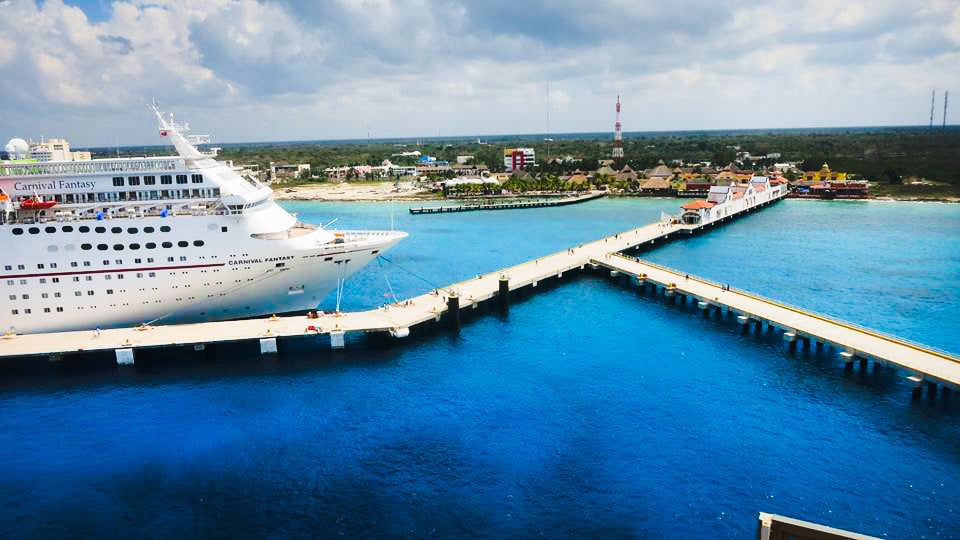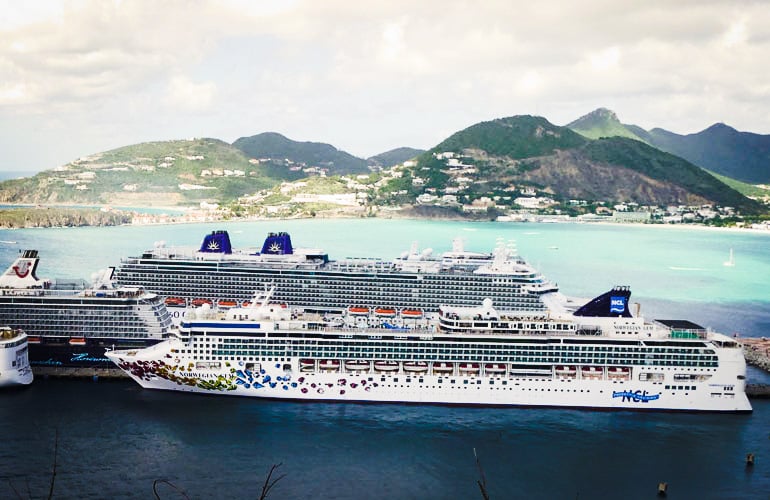When you go on a cruise, you want everything to be perfect. And normally, everything is. But in the event of an emergency, you don’t want to lose your entire investment or more.
Cruise insurance can help offset these costs, giving you the peace of mind that you’ll need to thoroughly enjoy your cruise.
But is cruise insurance really worth it? To answer this question, we gathered some estimates from reliable sources to demonstrate what you could expect to pay out of pocket without insurance.
Let’s take a closer look.
What is Cruise Insurance?
Like most of us, when you take a cruise it’s likely to celebrate a special occasion. You may have been saving up for several years. You want to get your money’s worth.
The vast majority of cruises are the perfection that you’ve always dreamed they would be. But bad things can happen. And those things that happen can amount to very high out of pocket expenses because you’re away from home.
Cruise insurance is a very affordable way to avoid losing the cost of the cruise or more in the event of a disaster’s strike.
Depending on your policy, cruise insurance may cover the following:
- Non-refundables
- Medical treatment
- Med evac
- Repatriation
- Missed boat
- Trip cut short
- 24-hour emergency assistance
We’ll discuss each of these thoroughly in the next sections.
Non-Refundables
Mass travel like a cruise is very expensive for the cruise operator. They have the cost of:
- Fuel
- Maintenance
- Food
- Staff
- Entertainment
- And much more
These costs are divided among the number of travelers on their cruise so that that cruise operator can offer each cruiser an amazing experience for an affordable price.
If someone cancels at the last minute, the cruise’s costs don’t go down.
They go up per person. The cruise operator is in a very difficult position. They can’t increase the cost for those who do not cancel. They therefore often don’t offer refunds to the one canceling. This is usually stated in their policy when you pay for the cruise.
In the event of a family emergency, you are in a position to decide. Do you go on the cruise despite the emergency or forfeit a deposit of the entire amount?
Going on the cruise would mean potentially feeling that you’ve abandoned someone you love in a time of need. Not going on the cruise could mean losing a lot of money. Depending on your financial circumstances, it could also mean you never get the opportunity again.
Another common cancelation reason may be a hurricane risk. Even if the hurricane is several miles away, no one wants to spend their cruise in the cabin because it won’t stop raining.
The average cruise costs around $1800 per person. Cruise insurance makes sure you don’t lose this in the unforeseen event of a cancelation emergency.

Medical Treatment
A cruise gives you the opportunity to not only enjoy on-boat activities but also to visit many exotic places outside of the U.S.
You may think that you have medical insurance and that this insurance covers you no matter where you are. But most medical insurance doesn’t cover your care while you’re out of the country.
In the event of a medical emergency, you may be responsible for the cost of care.
Even a relatively healthy person can have a medical emergency. According to the CDC, 12-18% of all medical emergencies on cruises are the results of slips and falls.
This represents the 2nd most common medical emergency on cruises behind respiratory illnesses. Either of these can happen to anyone in an environment that may be wet, slippery and in close quarters.
According to Consumer Reports, the bills can range from a few $100 to several thousand dollars, Much of this depends on the severity of the injury.
Your cruise ship will provide basic medical care in the event of an emergency. But this would rarely be included in your cruise payment. You’ll need cruise insurance to cover this expense.
Med Evac
Cruise doctors are not trained to handle all medical emergencies. And the U.S. court system has upheld judgment that it would be unreasonable to expect them to do so.
In the event that you need medical care that is beyond the abilities of cruise doctors, you could require a med evac, also called a life flight, to save your life. A med evac would likely take you to the nearest hospital, which may not be in the U.S.
In the event of a med evac, you would not only be responsible for the $12 thousand to $25 thousand for the helicopter trip. You would also be responsible for the hospital bill in the non-U.S. facility.
These bills can amount to thousands and many facilities are unable to accept credit cards. In these cases, having cruise insurance could quite literally save your life.
Missed boat
During a cruise, you will be making many stops ashore in various countries. You may stay in a hotel overnight, spend a day browsing through the markets, taking an excursion or hitting the bars.
Regardless of how you spend the time ashore, there are always risks of missing the boat due to circumstances out of your control.
You could be detained or delayed by local authorities on suspicion of a crime or because you reported a crime.
You may have had too much to drink and lost track of the time. You may have had an accident that required medical treatment. Or your paid excursion may have returned later than planned.
Whatever the reason, you’re now in a position to make your own travel plans to meet up with the boat at the next scheduled stop or go home.
These costs can vary widely from the cost of chartering a boat to hopping on a last-minute flight. If you’re in a foreign country, this can be not only a costly mistake but also a very stressful one. So you’ll be glad to see the next common benefit of cruise insurance.
24-Hour Assistance
Many cruise insurance companies will offer you a life line in the case of an emergency. They’ll have a 24-hour helpline that you can call.
An established cruise assistance company has seen it all. They have resources in many common cruise port countries. They’ll often have interpreters and advisors to help you get your trip back on track.
Trip Cut Short
While at a port in the Dominican Republic, you may receive word that a close family member’s health is failing. You need to get home immediately to be with your loved one. Cruise insurance will help cover these expenses.
Repatriation
This is one that no one wants to think about. But it’s an important consideration. If you were to pass away while on the cruise, your remains would need to be returned to your home country for proper burial.
Shipping remains involves preparing the body, purchasing a casket for transport and the actual cost of transport. According the the U.S. Embassy of Jamaica, for example, shipping can cost up to $5,000. In other countries, the cost could exceed $10,000.
Without insurance, this expense would be on your family and/or estate. If they cannot afford to transport you back to the U.S., then burial arrangements will need to be made in the nearest country, which starts at around $2000.

How to Choose Cruise Insurance
It’s important to realize that the above benefits are not in all policies. You’ll need to consider your budget and what you could reasonably afford to lose. Then make a coverage choice.
Consumer Reports makes some very good recommendations regarding choosing cruise insurance.
They recommend that you not buy insurance through the cruise line or a travel agency. These are often commissioned sales people who are trying to upsell you by offering you their insurance. Their insurance may be great. But you’ll want to shop around to make sure you’re getting the coverage you’re looking for at the best price.
These are often commissioned sales people who are trying to upsell you by offering you their insurance. Their insurance may be great. But you’ll want to shop around to make sure you’re getting the coverage you’re looking for at the best price.
Identify existing coverage before you buy. You may already have an addendum on your homeowners, auto, life or health that covers some things that a cruise insurance policy might cover. Don’t double up on insurance unnecessarily. Your policy should fill in the gaps based upon what you have. Your policy should fill in the gaps based upon what you have.
Look for an online independent broker who sells for several companies. Because these brokers are not locked in with one company, they can more objectively help you find exactly what you’re looking for.

Evaluate what your concerns are and specifically ask if that’s covered. If you have a pre-existing condition, be sure to ask if anything is excluded in your medical for that reason.
Finally, the recommend that you not overdo it. For example, some policies might cover very minor events that cost you very little. Insurance should be about avoiding costs that could hurt you financially.
Finally, don’t overpay. Comprehensive coverage should be no more than 5 to 7% of the cost of your cruise.
Planning Your Next Cruise
When planning your next cruise, consider what you could afford to lose in the event of a disaster, and buy insurance accordingly.
Get the latest in cruise news plus articles on everything from saving money on cruises to which cruises offer the best experiences. Browse our site, get informed, and get the most out of your vacation.



